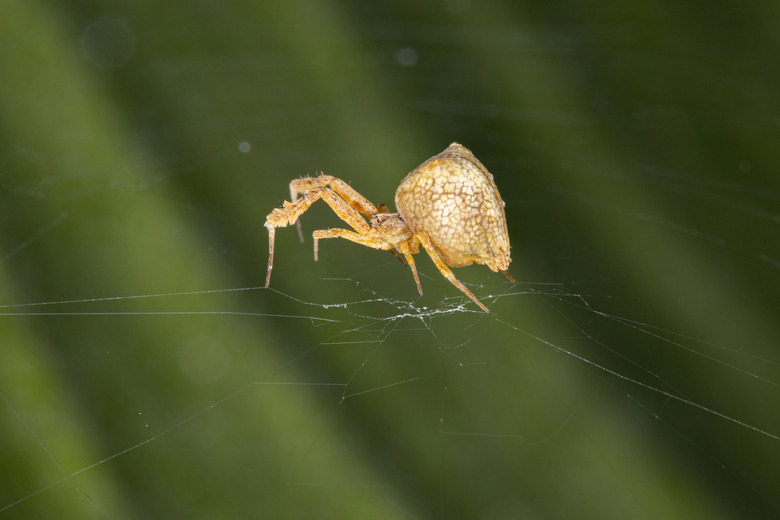First Ever Gene-Edited Spider Spins Webs Of Glowing Red Silk
Scientists have officially brought genetic engineering to the spider's web. For the first time, researchers have created a gene-edited spider that spins red fluorescent silk.
Led by a team at the University of Bayreuth, the project tackled a long-standing challenge in genetic research. While CRISPR-Cas9 has been widely used in everything from agriculture to medicine, spiders have remained elusive due to their complex genomes and less-than-cooperative personalities (not to mention their cannibalism).
However, scientists were able to bypass those hurdles by injecting a customized gene-editing mix into the unfertilized eggs of the common house spider. The resulting gene-edited spider produced silk infused with a red fluorescent protein.
The silk retained its natural properties of being lightweight, incredibly strong, and biodegradable. But now, the web also glows under certain light conditions. This is yet another win for gene editing, much like the disease-resistant, gene-edited pork that may come to stores soon.
According to senior researcher Dr. Thomas Scheibel, the goal is to expand the functionality of spider silk. With CRISPR now in play, it could be engineered for new uses in medicine, materials science, or even wearable tech.
The team also used a gene-silencing technique known as CRISPR-KO to deactivate a gene called "so," believed to control eye development. Sure enough, spiders with this gene knocked out were born without eyes, proving a genetic link and opening the door to deeper biological insights into arachnids.
The study confirms not only that spiders can be gene-edited, but also that they can pass these traits on without losing the qualities that make their silk so prized. Gene editing unlocks a lot of potential, including the potential to turn gene-edited mosquitoes into population control for the pesky insects.
